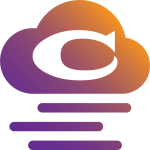Remote work is no longer a trend—it’s the new normal. But in a crowded online job market, standing out is harder than ever. That’s where online certifications for remote jobs come in.. In 2025, hiring managers are leaning on certifications as quick proof of your commitment, competence, and readiness for remote roles.
Whether you’re applying through platforms like FlexJobs or pitching directly to startups, having an online certification to work from home signals that you’ve invested in professional growth. It gives recruiters confidence in your skills—especially when you’re not meeting face-to-face. In other words getting a certificate to work from home is one of the fastest ways to get hired in 2025.
Here’s why it matters now more than ever:
Features
Certifications validate your skills—even without a degree.
Certifications help your resume stand out in automated hiring systems.
Courses teach tools and habits tailored to remote work.
They show initiative and professionalism before the interview.
Great for crossing borders—especially in freelance or international roles.
Hiring managers prioritize certified candidates when time is tight.
In short, if you’re building a remote career, certifications aren’t just nice to have—they’re a smart, strategic move to get hired faster.
Top Remote Certifications to Work from Home
→ Job-ready, affordable, and flexible options
Not all certifications are worth your time—or your money. To truly improve your hireability, you need online certifications to work from home that are:
- Recognized by employers
- Focused on in-demand remote skills
- Affordable and accessible worldwide
The good news? You don’t need a four-year degree or $5K bootcamp to qualify for great remote jobs. These certifications deliver real results and fit around your schedule.
Features
LinkedIn Learning, Fiverr Learn, Google Digital Garage
Toggl Academy, Fiverr Learn, Coursera PM
HubSpot Academy, Google IT Support
AWS Cloud, Meta Developer, Google UX Design
Google Digital Garage, LinkedIn Free Month
Coursera, edX, AWS Training
These certifications are updated regularly and align with fast-growing remote career paths—from tech support and cloud to marketing and project roles.
Remote Career Skills to Learn Now
→ Skills that pair well with certification paths
Certifications are powerful, but they don’t work in a vacuum. To succeed long-term in remote work, you need more than technical knowledge—you need practical remote career skills that employers expect from independent, self-managed professionals.
The best part? These skills are free to build, easy to practice, and often overlooked by job seekers focused only on formal credentials.
Here are six essential skills that pair perfectly with the certifications you’ve already earned—or plan to pursue:
Features
Master tools like Slack, Loom, and Notion to stay in sync remotely.
Learn how to structure your day without micromanagement.
Remote roles reward those who can manage progress independently.
Skills in Trello, Miro, or Google Workspace boost team workflows.
Knowing where and how to find legit remote work is critical.
Showcase projects and certifications to win trust faster.
Start small—pick one skill to improve alongside your certification track. Most of these can be learned via free courses, peer practice, or better tooling.
And remember, hiring managers aren’t just looking for talent—they’re looking for someone who can thrive without hand-holding.
Freelance & Tech-Focused Certification Picks
→ Ideal for digital nomads and remote tech roles
If you’re targeting freelance gigs or remote-first tech companies, your certifications should do more than check a box—they should prove that you can work independently, solve problems, and collaborate digitally across time zones.
The certifications below are high-value picks for developers, marketers, designers, virtual assistants, and cloud support roles. They’re well-respected, flexible, and often paired with in-demand remote skills like Git, cloud platforms, or client communications.
Features
JavaScript, GitHub, and responsive design skills for freelance developers.
Short, niche-focused courses built for gig-based remote careers.
Remote collaboration and productivity training for freelancers.
These certifications not only build your skills—they show clients and companies that you can deliver without handholding, manage your own learning curve, and thrive in a distributed team environment.
How to Choose the Right Remote Certification
→ Based on your goals, role type, and schedule
With so many online certifications available, it’s easy to get overwhelmed. The key isn’t just choosing what’s “popular”—it’s choosing what’s aligned with your remote work goals, your experience level, and the time you can realistically commit.
Start by asking yourself these three questions:
Features
Are you aiming to land a full-time job, freelance, or upskill in your current role?
Different certifications suit tech, creative, admin, or support tracks.
Some programs take hours, others take months—choose what fits your schedule.
Look for certificates that boost real job outcomes, not just badges.
Choose platforms employers trust—Coursera, AWS, HubSpot, etc.
Pick certifications that offer hands-on projects or real-world practice.
A good certification should move you forward—not leave you with a PDF and no next step. Pick one that connects naturally with the type of role you want and lets you practice what you’ll actually do on the job.
Where to Find Recognized Online Certification Programs
→ Platforms and providers that employers trust
Not all certification platforms carry the same weight. When it comes to getting hired remotely, employers trust certificates from providers they recognize—especially those backed by major tech companies, universities, or real-world project learning.
If you’re investing your time (and sometimes money), make sure it’s with a name that opens doors, not just fills a line on your resume.
Features
Professional development and soft-skill training for remote teams.
Start a tech career with cloud certifications recognized worldwide.
These platforms aren’t just educational—they’re employer-approved. Certifications from them show you’ve learned what actually matters in a remote job: tools, workflows, and real deliverables.
How Fast Can You Get Certified and Hired?
→ Realistic timelines + quick-start strategies
The good news: remote-friendly certifications don’t take years. Some can be completed in a weekend—and paired with smart strategies, they can lead to freelance gigs or job interviews in under a month.
A virtual bookkeeper completed a 3-week certification on remote work tools and landed her first part-time client via Upwork just 10 days after updating her profile.
Here’s what the timeline usually looks like, depending on your time commitment and field:
Checklist
But certification alone isn’t enough—you need to act on it. That means adding it to your resume, LinkedIn, and pitching yourself to job boards or freelance clients right away.
Bonus: Free or Low-Cost Certification Options
→ High value on a budget
You don’t need a big budget to break into remote work. Many trusted providers offer free or low-cost certifications that still carry real weight with employers—especially when paired with solid communication and portfolio skills.
If you’re just starting out, testing a new field, or freelancing part-time, these options can help you build credibility fast without draining your wallet.
Features
Inbound, content, and email marketing certifications at no cost.
Access dozens of certs in project management and communication.
Explore creative and freelance-focused certifications at low cost.
Whether you’re testing the waters or need to upskill fast, these platforms offer a smart path to build confidence, skills, and portfolio pieces—without the price tag.
FAQ: Remote Certifications
Remote job certifications can unlock huge opportunities—but they also come with a lot of questions. Below are answers to the most common concerns from beginners, career changers, and freelancers looking to boost their hireability.
Ready to Take the Next Step?
You don’t need a degree, years of experience, or a huge budget to start building a remote career. You just need the right certification—and a clear path forward.
Whether you’re aiming to freelance, join a global team, or pivot into tech, remote certifications give you credibility, skills, and confidence.
Here’s where to go next:
- 🔗 Remote Job Opportunities
Explore vetted job boards and platforms that prioritize remote-ready talent. - 🔗 Advance Your Remote Career
Learn how to stack skills, certifications, and habits that lead to promotions and freedom. - 🔗 Work From Anywhere Tools & Resources
Set yourself up with the gear, apps, and workflows every remote pro needs.
- Get a Remote Job – No Experience Needed
- Async vs real-time remote
- ATS Keyword Strategy
- Top Soft Skills for Remote Jobs
- Office vs Remote Job Skills | What Really Changes
- What Remote Recruiters Look For
- Remote Resume Revamp | How to Tailor Your Resume for Remote Roles
- Top Remote Jobs That Pay Well in 2025
- How to Work Remotely While Traveling (Digital Nomad Edition)




